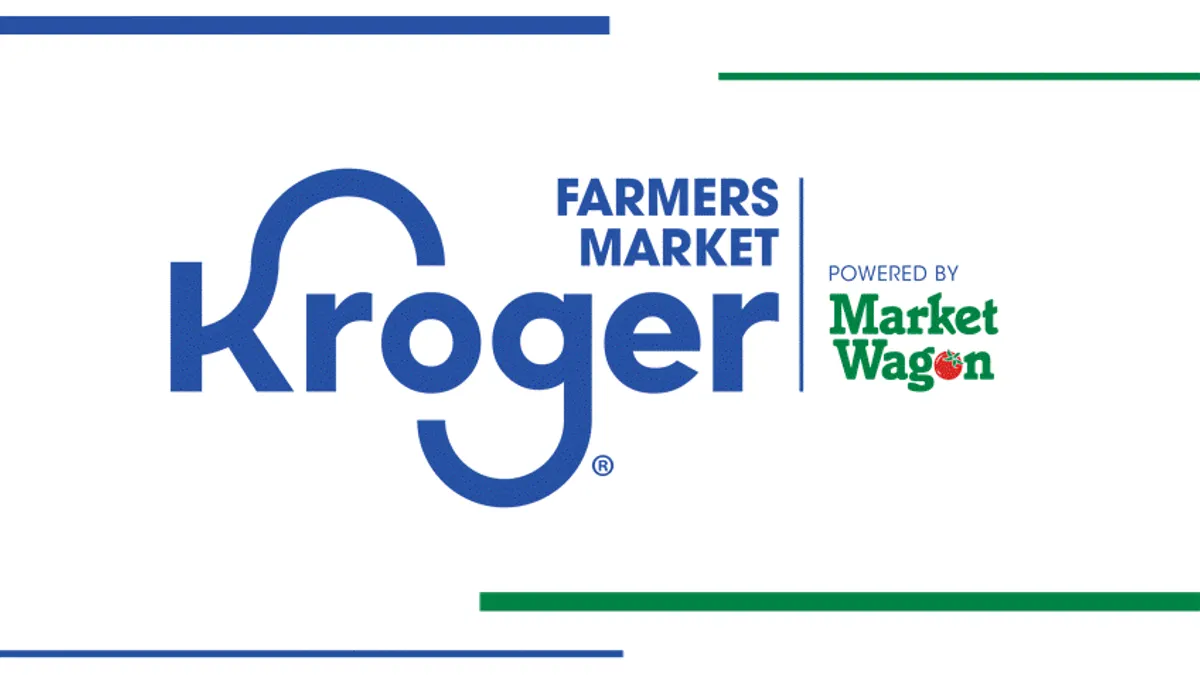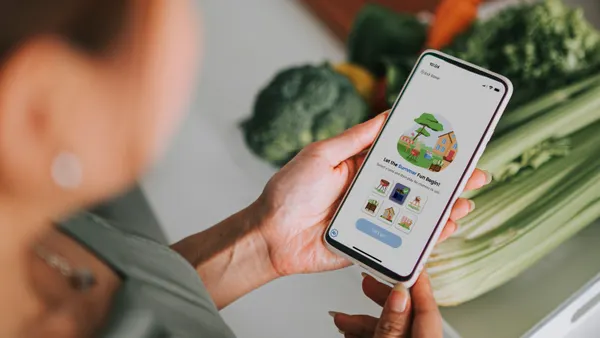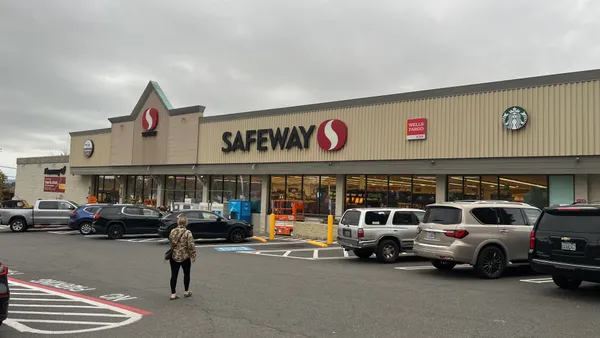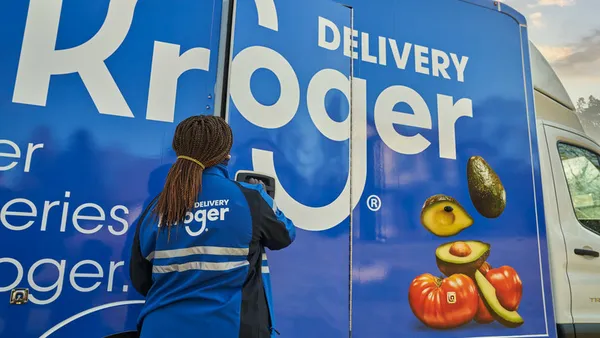Dive Brief:
- Kroger has launched a digital farmers market pilot in Atlanta in partnership with Market Wagon, an online ordering and delivery service for food from local farmers and artisan food producers, according to an emailed press release on Thursday.
- Called Kroger Farmers Market, the e-commerce marketplace exclusively sells more than 1,150 products from local farmers, bakeries and food artisans. The service delivers within a 60-mile radius that covers 28 counties in the Atlanta metropolitan area and offers scheduled delivery on Tuesdays and Fridays.
- The pilot bolsters Kroger’s e-commerce expansion as well as the grocer’s local sourcing efforts, Felix Turner, corporate affairs manager for Kroger’s Atlanta Division, said in the announcement.
Dive Insight:
As Kroger pushes into more online-only and omnichannel grocery shopping options, the digital farmers market provides another avenue to capture customers.
"Kroger's new digital farmers market pilot is part of the evolution of our rapidly growing and innovative e-commerce business," Turner said in the press release. "This partnership reinforces the importance of buying local to customers, powered by modern, cost-effective, and efficient last-mile solutions."
The announcement about Kroger Farmers Market comes just months after Kroger Delivery service launched in the Atlanta area, serving shoppers within 90 miles of the grocer's automated fulfillment center in Forest Park, Georgia.
Started in Indianapolis in 2016, Market Wagon saw a growth spurt during the pandemic and currently works with more than 2,500 local farmers and artisans across dozens of markets, including Atlanta, Minneapolis, Chicago, St. Louis, Pittsburgh and Washington, D.C.
Market Wagon relies on a decentralized vendor network that uses technology to match customers to its vendor partners and then combines a shopper's orders from multiple suppliers into one scheduled delivery, Nick Carter, co-founder and CEO of Market Wagon, told Grocery Dive last fall.
While the company describes itself as an "online farmers market," Carter said Market Wagon's target customers are not typical farmers market attendees — who often enjoy the live festivities and social elements that are frequently part of the events — but shoppers who want to buy local to support their communities and also want the convenience of online shopping.
Market Wagon is in the grocery business but has a different model than traditional supermarkets.
"We're not a farmers market. Now when I say that, we're supplying groceries with a completely different kind of supply chain than grocery [has], and it's one that grocers are not set up to deal with. ... Their scale is designed around uniformity. They need to have one supplier that can bring all of their eggs for all 120 stores in the entire region, right. They can't cope with having 120 suppliers of eggs," Carter said.
Increasing sourcing diversity, including adding more products from local suppliers, has become a bigger effort for grocers, including Kroger, recently — especially as supply chain challenges force grocers to seek out new supplier relationships.
Last year, Kroger held a competition as part of its new Go Fresh & Local Supplier Accelerator to expand its sourcing from local and regional growers and producers, giving the winners placement on Kroger shelves as well as ongoing business development support from the company and its affiliates. Last month, the grocer announced the program would return for a second year.
Kroger has said that uplifting local suppliers can help support its efforts to boost supplier diversity, which the grocer has pledged to invest $10 billion in by 2030.












